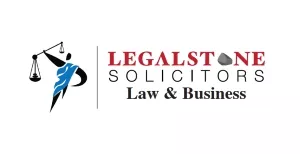Introduction
With the advancements in technology and increased internet accessibility, a lot of gaming companies have sprung up in Ghana, providing, online platforms for easy access and convenience. Sports betting is very popular in Ghana, especially among sports enthusiasts. Understanding the legal regime is essential for compliance, avoiding penalties, and ensuring responsible and transparent operations.
Regulatory Authorities in Ghana
- The Office of the Registrar of Companies (ORC)
The ORC under the Registrar General's Department (RGD) is responsible for registering and regulating all types of businesses under the Companies Act, 2019 (Act 992). According to the Gaming Act, 2006 (Act 721), businesses in the gaming industry must be incorporated as limited liability companies or companies limited by shares. As outlined in section 13 of the Gaming Act, the ORC is expected to ensure that any company entering the gaming industry is incorporated as a company limited by shares, which may be private or public.
Section 14 of the Gaming act requires that the company's ownership structure is to be partly or wholly owned by a Ghanaian.
An incorporation fee, a filing fee, and a 1% stamp duty on the company's stated capital must be paid to register a company in Ghana. Once the application is reviewed and approved, a certificate of incorporation will be issued out.
- The Ghana Investment Promotion Centre (GIPC)
Section 24 of the GIPC Act, 2013 (Act 865) states that, a company with foreign participation after its incorporation and before commencement of operations must register with the Ghana Investment Promotion Centre (GIPC). Registration with the GIPC comes with several incentives, including investment guarantees, automatic expatriate quotas, the ability to transfer capital, profits, and dividends, etc.
The GIPC sets minimum capital requirements for which companies with foreign participation must meet. For sports betting, the minimum capital requirement is US$500,000.00. For joint ventures (foreign investor with a Ghanaian partner holding at least 10% equity), the foreigner must invest a minimum stated capital of US$ 200,000.00.
- The Gaming Commission of Ghana
The Gaming Commission of Ghana is responsible for regulating, controlling, monitoring, and supervising all games of chance in Ghana. To apply for a sports betting license in Ghana, applicants must have a registered company of which it must be a limited liability company, have an identifiable office, and a registered service mark or logo.
Additionally, the company must obtain criminal clearance certificates for all directors and submit a tax clearance certificate. Sports betting fees shall be paid to the Commission upon which a license may be granted and or issued.
Other Mandatory Authorities
- Ghana Revenue Authority (GRA)
Register with the GRA for tax purposes and obtain a tax clearance certificate. This is to ensure compliance with the law and also contribute to the development of the country.
- Social Security and National Insurance Trust (SSNIT)
The company must register with SSNIT and contribute for their employees' retirement benefits.
- Data Protection Commission (DPC)
The Data Protection Commission regulates the processing of personal information, outlining the procedures for obtaining, holding, using, or disclosing personal data. Sports betting companies must register with DPC to have a license to be able to collect, use and process personal information and data of individuals. Licenses are renewed annually.
- Metropolitan, Municipal, or District Assemblies (MMDAs)
Business operating permits must be obtained from the local assemblies where the company operates.
- Business Account Opening
Sports betting companies must open a corporate bank account with the minimum capital requirement. One of the benefits of opening a corporate bank account is the transfer of funds out of Ghana.
Legal Requirements for Sports Betting Companies
- Compliance and Enforcement
Companies must ensure ongoing compliance with all regulatory requirements and also report to the relevant authorities.
- Non-Transferability of License
Section 19 of the Gaming Act, 2006 (Act 721) strictly forbids the transferability of a license and any attempt to transfer the license to another person is an offence. Violators are liable, upon summary conviction, to a fine of not less than five hundred (500) penalty units or a term of imprisonment of not less than two years or both.
- License Renewal
Sports betting licenses are renewed annually. The Fees and Charges (Miscellaneous Provisions) Regulations, 2023 L.I 2481determine the fees and charges applicable to the Gaming industry in Ghana.
Conclusion
Sports betting contributes significantly to state revenue and the Gaming Commission has made commendable efforts to regulate the industry, particularly in ensuring compliance and, in raising public awareness.
The content of this article is intended to provide a general guide to the subject matter. Specialist advice should be sought about your specific circumstances.


